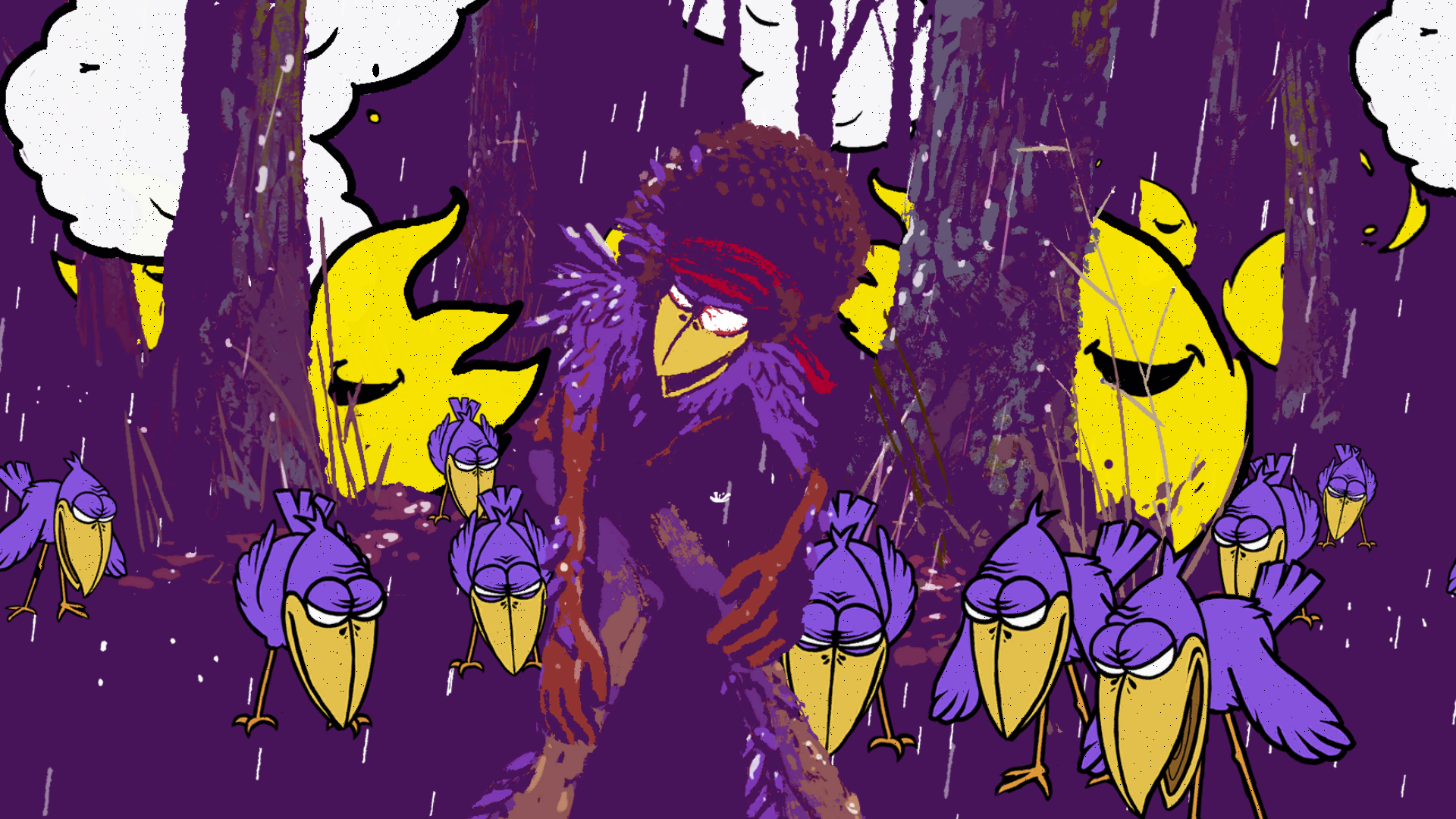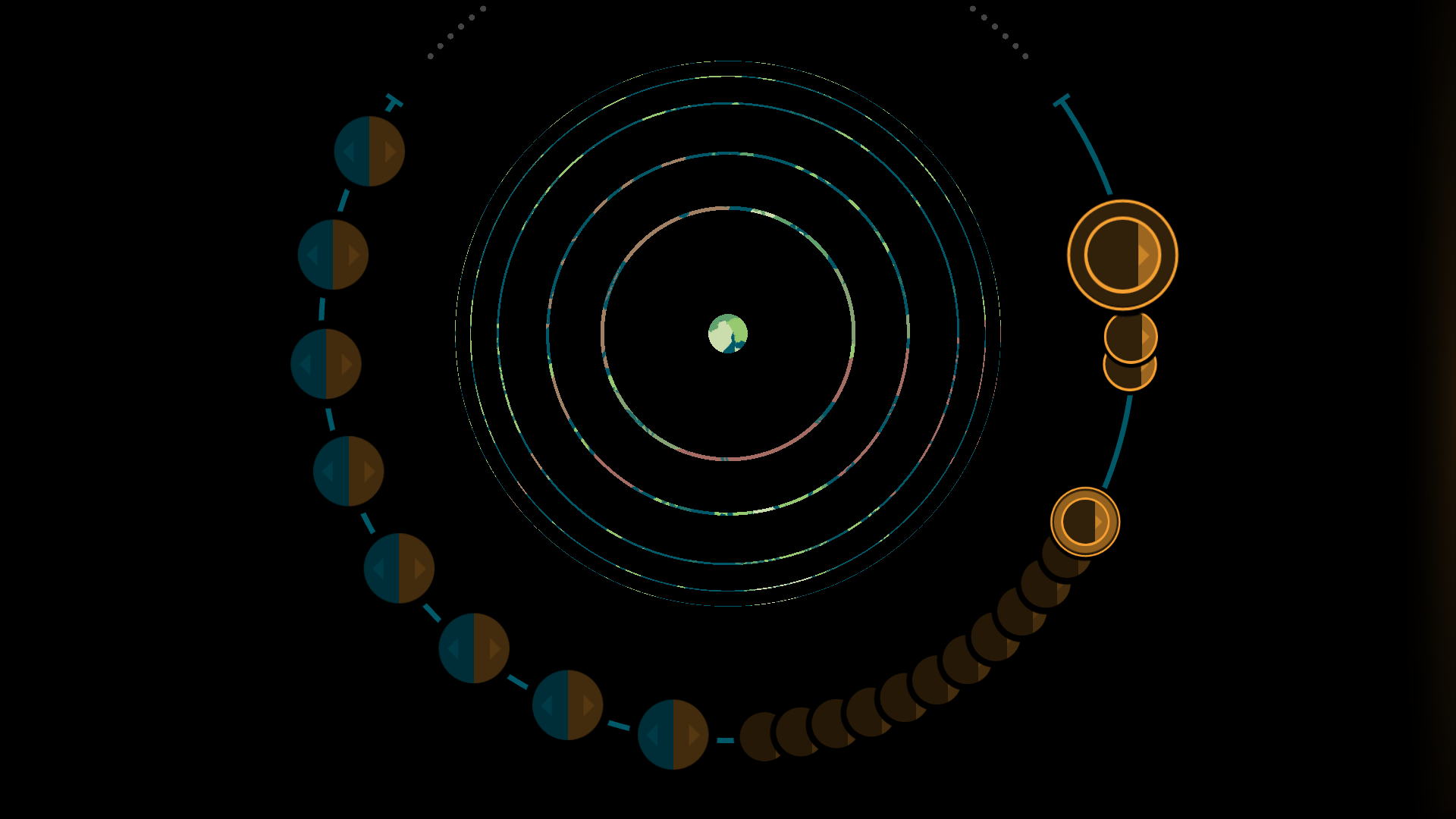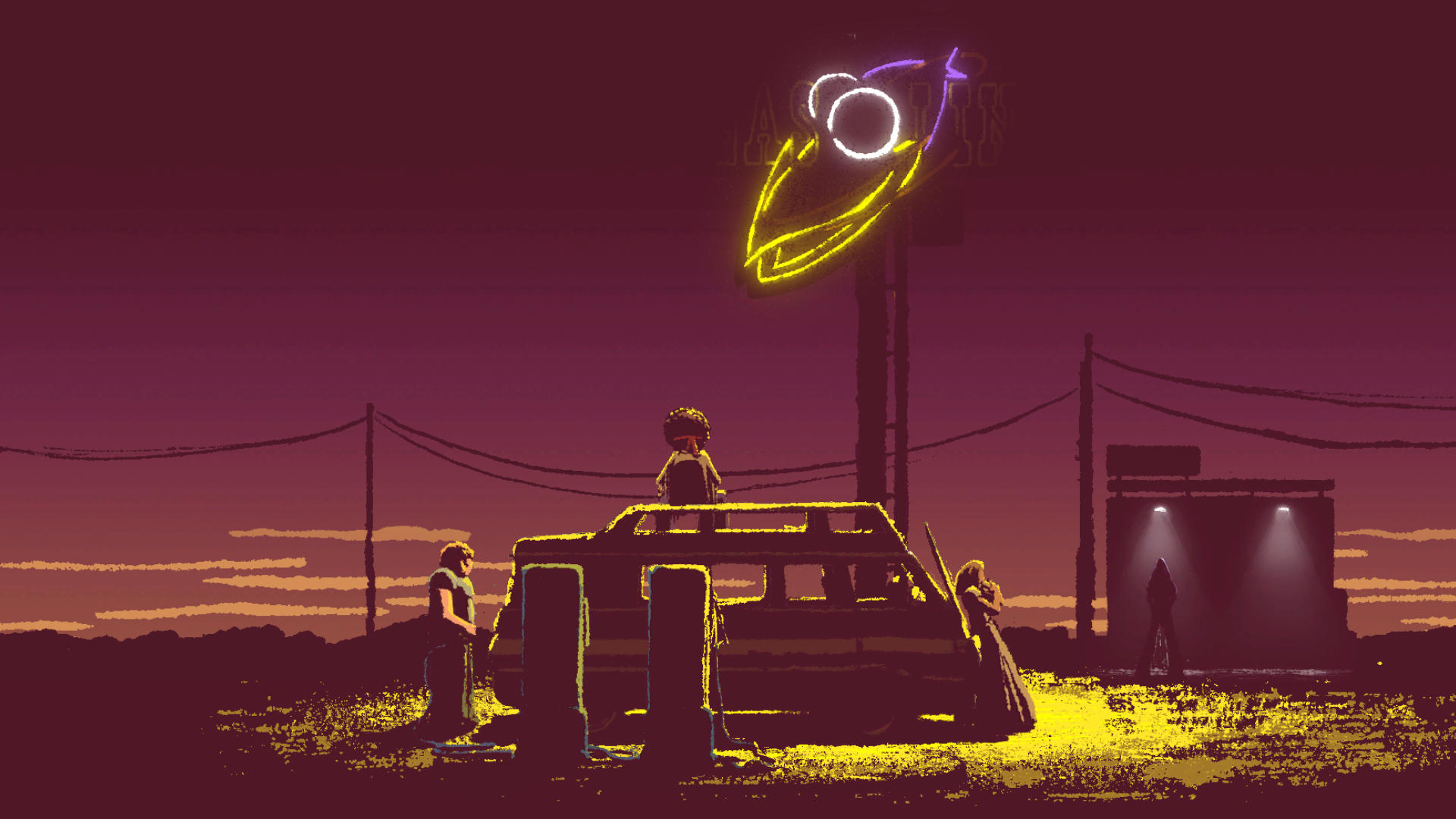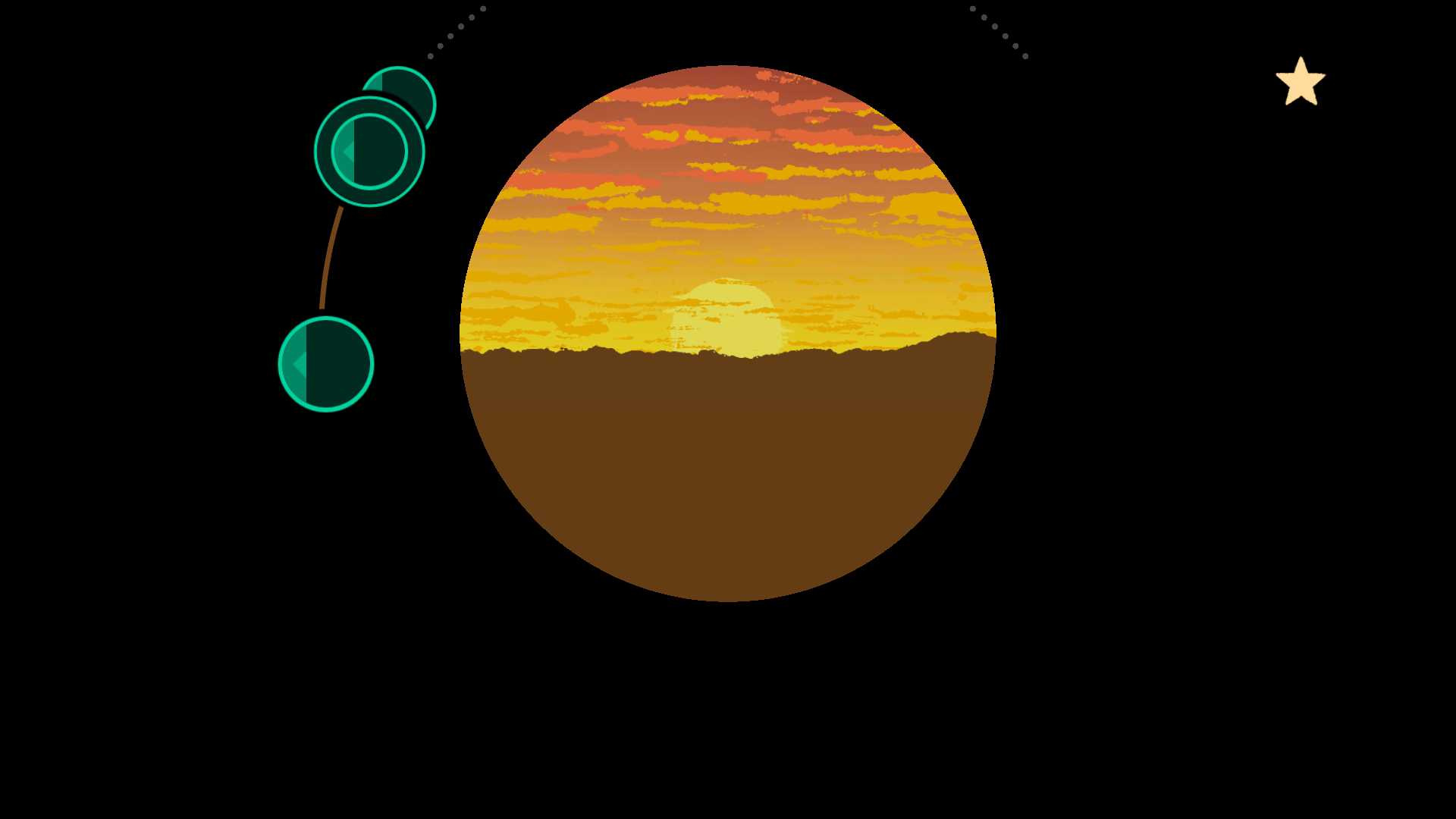Our Verdict
Great music, delivered in frustratingly bitty form. A clever rhythm game that doesn't mesh with its prominent story.
PC Gamer's got your back
What is it? A rhythm game following the guitarist of a 1970s rock band.
Expect to pay: £11.39/$15
Release date: Out now
Developer: Glee-Cheese Studio
Publisher: Digerati
Reviewed on: Intel Core i7-10750H, 16GB RAM, GeForce RTX 2060
Multiplayer? No
Link: Official site
If Guitar Hero is about the fantasy of being a rock legend, A Musical Story is about the reality. There can be no whiffing of notes here, and no strutting around your living room like a Rock God. This is a tough, unusual rhythm game that insists on perfection for each of its instrumental songs. That's perfection through repetition, through learning each rhythm and getting a feel for the music. It's probably a more accurate representation of the process of learning a song. Real rock stars don't get a timeline showing them when, exactly, they need to hit each note.
So it goes in A Musical Story, a game where the timeline has (mostly) disappeared. Instead, you need to learn the tempo and rhythm of each tune (tapping your toes, or nodding your head like a wanker helps). It's an uncompromising rhythm game, and I like it for that. After passing each exam-like song section, you're rewarded with another story chunk, which is told via beautiful animation and (surely) the game soundtrack of the year.

While you'll flit between multiple instruments, the story follows the guitarist of a 1970s rock band, as the gang embarks on a road trip to the Pinewood music festival. But it's much more a game about the guitarist's drug addiction, as represented by the crows that begin to intrude upon his perception of reality.
There's no dialogue, and it's not needed, thanks to the quality of the visual storytelling and the exceptional soundtrack, which you do feel like you have some ownership of. Funk rock gives way to folk and big fat '70s synths, and extended math rock sections that will really test your ability to tap, and hold, in time to invisible tempos.
So here's how it works: At regular junctures in each song, the scene will dwindle away as little icons appear in a circle around the screen. These represent notes, which you have to press in time to the music, using just two keys on your keyboard or controller. In Guitar Hero, you can literally see the notes coming towards you, but here it can be difficult to figure out the duration of each gap, as there's no indicator showing your position in the song. Mess up just once, and you'll have to restart that loop, as you wave goodbye to the optional bonus star for that whole chapter.

There is some help offered in the form of a subtle position marker that activates if you fail repeatedly, and which quietly disappears when you improve. I should also point out that there's an option to make this help permanent, at the expense of earning bonus stars—a gentle encouragement to play the game as the developers intended.
I messed up a whole lot after the early chapters lulled me into a false sense of security. I earned a dispiriting zero stars for the last two-thirds of this roughly two-and-a-half-hour game. Partly that's because I'm not that good at rhythm games, even with the (somewhat flaky) assist mode offered here. But it's also curiously difficult to improve at A Musical Story: a game of constant, slightly unsatisfying learning.
Bit part
Even if you master the music, you'll never get to play a full song. You only perform brief snippets in A Musical Story. You'll do a bass loop, then maybe the drums and guitar, before finishing things off with a dusting of lovely synth. That's the ingredients for a song alright, but...I don't get to play the whole thing through at once? It's like McDonald's handing you the bread bun, but withholding the burger and cheese until you've finished it.

To be fair, this is an approach that keeps the music fresh and the challenge level high, as you'll never be going over something you've already done. But it also means that—when you've finally perfected that guitar riff, that drum loop, whatever it is—mastery is essentially thrown away. You're not given the time to demonstrate, to enjoy your new skill before the game shunts you on to something new.
Of course, you can replay chapters. Returning after finishing the story, I did find that my playing had improved slightly, as if I had memorised the soundtrack by osmosis. But the playing still feels too bitty, and strangely separate from the story being told. Why does it matter that I perfect this song, when the band that wrote it is currently falling apart? The protagonist is experiencing a drug-induced breakdown, but I'm in the corner doing my music homework. It's very odd.

It feels like A Musical Story is a game caught between two worlds, something immediately evident when you look at the screenshots. There are the cutscenes, and the gameplay, and they don't meaningfully connect—so much so that the story fades out, so as not to be a distraction. And yet I enjoyed getting back to the yarn, feeling the relief of passing each frustrating test as the song gradually formed around me. There's a fantastic, varied soundtrack that gels perfectly with the animation, morphing from one genre to another, as best suits the scene.
Despite my issues with how it connects, the actual rhythm mechanics are strong, paring the genre down to its essentials while still making it feel like you're playing a real instrument. A Musical Story wrings a lot of challenge out of just two buttons or keys. You're only ever tapping or holding one, the other, or both at once, but it takes skill to get the rhythm of each song down.
I did feel connected to the music—even as I failed its tests repeatedly—and without having to plug a plastic guitar into my computer. I just wish the game knew what it wanted to be: a story you experience, or a set of challenges you master. As it is, it's somewhere awkwardly in the middle.
Great music, delivered in frustratingly bitty form. A clever rhythm game that doesn't mesh with its prominent story.
Tom loves exploring in games, whether it’s going the wrong way in a platformer or burgling an apartment in Deus Ex. His favourite game worlds—Stalker, Dark Souls, Thief—have an atmosphere you could wallop with a blackjack. He enjoys horror, adventure, puzzle games and RPGs, and played the Japanese version of Final Fantasy VIII with a translated script he printed off from the internet. Tom has been writing about free games for PC Gamer since 2012. If he were packing for a desert island, he’d take his giant Columbo boxset and a laptop stuffed with PuzzleScript games.



